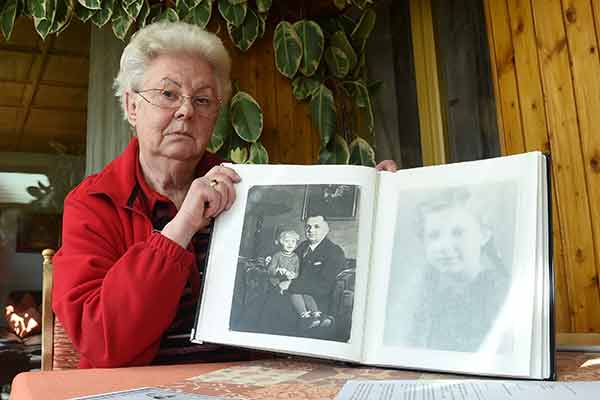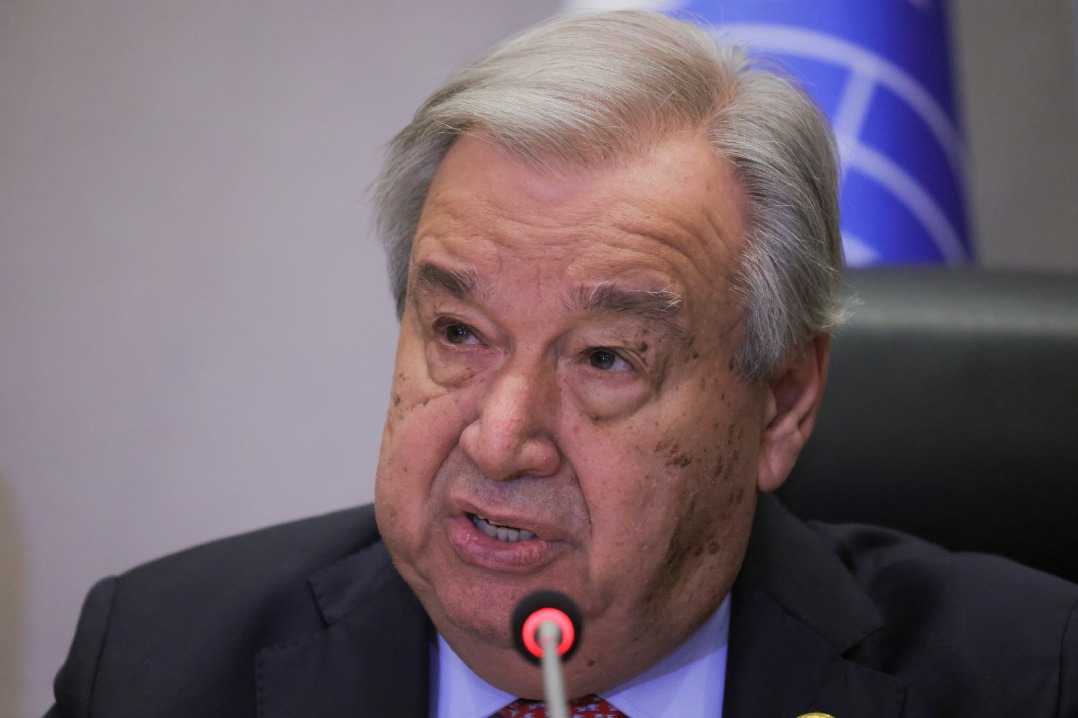German search for WWII missing nears end
China Daily | Updated: 2018-05-04 07:55

MUNICH, Germany-Diethild Heubel pulls a precious document from a binder: a yellowed decades-old letter, neatly handwritten by her father, a German soldier taken prisoner at the end of World War II.
"This is his last proof of life, the last time he wrote to us," the 83-year-old said in an interview in her apartment in the Bavarian town of Noerdlingen.
Her father Gerhard Stuerzebecher was a soldier in Adolf Hitler's army, the Wehrmacht. In 1945, he was interned in Austria in a Soviet prison camp.
Heubel was 10 years old at the time, and she and her mother never heard from him again.
"We were refugees-we had lost everything, but the worst part of it all was that we never knew what happened to him," she sighed, her eyes fixated on a picture of her as a child sitting on her father's lap, a demure smile on her lips.
"I still think of him every day. He was a teacher back home, he did not like war and yet he had to fight in two world wars," said the now elderly woman.
"To not know how he died and where he is buried ... it's hard."
1.3 million mysteries
Despite the passage of seven decades, many Germans are still searching for loved ones-soldiers and civilians-who vanished at the end of the war.
Their requests land in the office of the tracing service of the German Red Cross in Munich, created at the end of the conflict to determine the fate of some 20 million missing persons.
"At first, the number of cases tracked down was very high, but today there are about 1.3 million fates that we will never know," said Thomas Huber, 59, the service's current director.
It relies on German, Soviet and ex-East German archives to try to solve these riddles.
"It is particularly difficult to find dead soldiers in Soviet camps, for example, because their names were badly transcribed or their dates of birth were wrong," said Christoph Raneberg, who runs the service's archives.
During World War II, about 3 million Germans were taken prisoner by the Red Army.
The Soviet authorities consistently claimed that around 10 percent of them died in the gulag, while others estimate that far more did not survive the camps.
Nearly 75 years after the end of the war, the service's staff still receives around 9,000 requests for information each year, "often from grandchildren who are interested in their family history", Huber said.
Almost half of the applicants are rewarded with at least some information.
In some cases the results are extraordinary, as when in 2010 two brothers separated in 1945 were reunited after spending the Cold War on different sides of the Berlin Wall.
Agence France-Presse
























